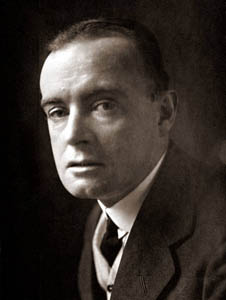I shall probably never summer at the Vineyard or winter at Palm Beach, or do whatever season one does at Biarritz. But there are some pleasures that are still accessible to the chronically underfunded, and a few, thanks to ebooks and the Internet, that are more accessible than ever. One of these is the pleasure of being polybiblious. This is not a word you will find in the dictionaries, but it has a certain amount of currency online; it means, of course, the habit of reading more than one book at a time.
I have been polybiblious, perhaps, about since the time my father gave me my second book. I am very hard on books; I have a way of breaking the spines, thanks to my habit of generally leaving four or five of them lying about on various surfaces, with the spine up to keep them from shutting and losing my place. (Bookmarks have never been my friends. Give me a million bookmarks today, and by tomorrow week I will have lost every one of them and be marking my places with pencils or paper towels.) People who read only one book at a time, generally speaking, don’t leave their books lying open for days on end, and I suspect they are rather apt to wonder how my books wear out so quickly.
But there are compensations. No monobiblist can ever know the polybiblious delight of seeing two incongruously different texts collide in a brilliant shower of new ideas. You can learn, not twice, but ten times as much by reading two good books concurrently than by reading each one straight through in turn. The texts themselves will conduct a lively argument in your head, which may lead you to conclusions that neither author ever dreamed of.
One of the books I have on the go at the moment is How We Invented Freedom & Why It Matters, by the indefatigably right-wing British politician, Daniel Hannan. Hannan makes some good points, and some questionable ones, about the particularly English heritage of law and liberty. He is quite right, I think, to stress the importance of the idea, inherent in English common law, that anything not explicitly forbidden is permitted. In contrast to this, he writes about his experiences with the Eurocrats in Brussels, who seem to have the idea that any new activity is illegal until some official writes a set of regulations for it. This is good stuff, and makes one rather more sympathetic to the late Douglas Adams. In the original Hitchhiker’s Guide to the Galaxy (the radio series), Adams informed us that of all the curse words in all the languages of our galaxy, the most obscene is ‘Belgium’.
On the other hand, Hannan makes, I think, too much of the specifically Protestant contribution to liberty. The English common law, the English Parliament, and the English jury system all flourished in the fourteenth century, when England was still a Catholic country. But the most important institution in the whole framework of English liberty, I believe, goes back to the almost unrecorded twilight of the seventh century. That is the English language itself. For English is a common-law language. [Read more…]









Recent Comments